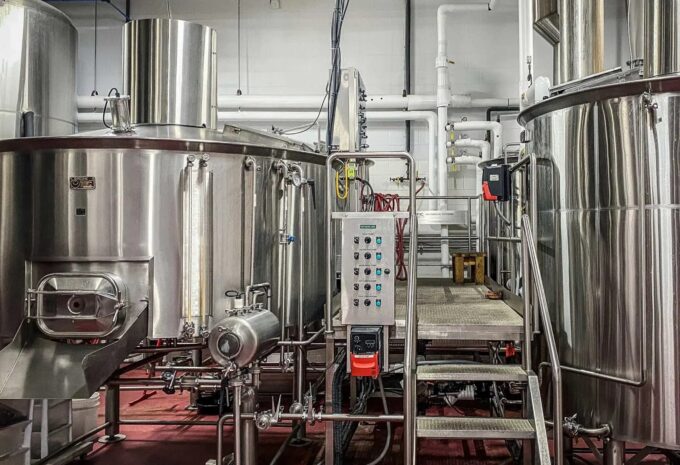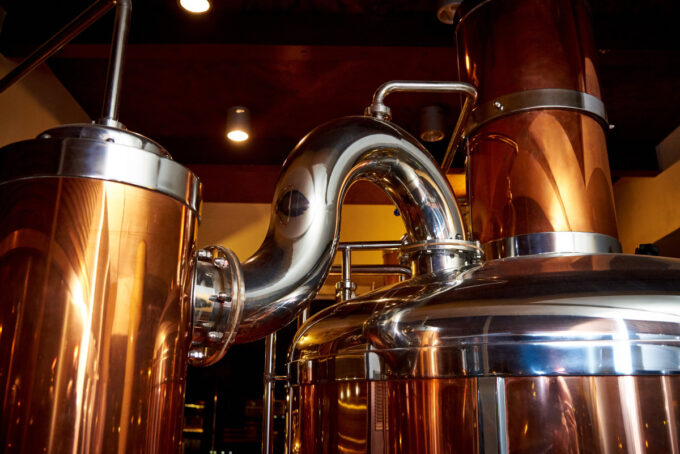Starting a brewery is an exciting undertaking, but making it successful is far from being a piece of cake. The truth of the matter is that it comes with many challenges. The competition is high, with the craft beer industry evolving and growing significantly as time goes by. Therefore, you need a comprehensive and effective strategy for navigating the competitive industry.
Additionally, you have to consider the entire scope of the business, including financial implications and the projected return on investment (ROI). With that said, here are the key factors to consider when starting a brewery:
1. Cost
Starting a brewery can be costly because you must invest significantly in every aspect of the company. The cost would depend on the size, location, and amount of beer you intend to brew.
Some common startup costs include the following:
Rent: The rent depends on the location of the brewery. For example, if you’re leasing a space in a populated urban area, the cost may be higher than in a rural area.
Construction: Suppose you’ve decided to construct your brewery from the ground up or renovate a dilapidated building; the cost would be a significant consideration. You must factor in design, material, and labor expenses in a brewery construction.
Utilities: A brewery requires sufficient power and water. You can estimate the monthly utility cost by researching other breweries’ usage.
Ingredients: Consider the cost of stocking up on the basic ingredients of beer, such as barley, hops, water, and yeast. Naturally, additional ingredients would increase the cost.
Salaries: Employees such as brewers, packaging and marketing teams, and bartenders must be paid monthly. These are ongoing expenses you must consider when starting a startup.
Equipment: The cost of brewing equipment, such as barrels, bottles, cans, glasses, flight boards, and furniture, would depend on the size of your operation.
Licensing and government regulation permits: State and local regulations have different regulatory requirements for setting up a brewery, and the costs of licenses and permits can differ. Thus, research the licensing regulations in your area and how much it’d cost you.
Different factors, including those mentioned above and your needs, influence the overall cost of a startup brewery. Consider your goal regarding the size of the brewery and the type of beer you’ll be brewing. You can also consult other successful owners on the estimated cost of starting a brewery.
2. Location

Location is a crucial element in a brewery startup and can determine its success or failure. Other aspects, such as cost, can be affected by the location you settle for. Some factors to consider when choosing a location include proximity to suppliers and customers, rent or lease cost, and zoning regulations.
Consider hiring a logistics company like Brew Movers because proximity to suppliers can affect your choice of location. Whether you need construction materials or ingredients for the brewery, it’s important to be near suppliers. For example, some ingredients, like hops, malts, and yeast, should be fresh and high-quality; thus, being far from suppliers can compromise these ingredients’ freshness and quality during transportation. Moreover, you’ll reduce the cost of transporting materials and ingredients.
If you’re renting or leasing, find an affordable location that fits your budget, as it can help keep your overall cost low. Consider several locations before choosing the one you deem fit for your brewery startup.
Moreover, access to customers is a crucial element when considering the location of your brewery. Studying an area and understanding customer trends can help determine an area with a great beer-lover market pool. Moreover, the brewery location should have ample parking space and be near public transport.
Zoning regulations also impact your choice of brewery location. Localities have different rules regarding this. Researching and understanding the zoning regulations of your preferred location can help ascertain compliance and avoid legal issues.
Zoning regulations also impact your choice of brewery location. Localities have different rules regarding this. So, researching and understanding the zoning regulations of your preferred location can help ascertain compliance and avoid legal issues.
3. Business Plan

A well-thought-out business plan ensures your brewery’s success by providing direction. It should outline the goals and implementation plans for those objectives. Also, ensure it can identify the market, competition, target customers, financial implications, ROI, and marketing strategy.
Market analysis requires researching the beer industry and market trends and needs. This step helps identify opportunities, risks, and threats. Hire an expert if you need help gathering these data and conducting a comprehensive market analysis.
Moreover, understanding your competitors is crucial to your brewery’s success. Thus, the business plan should contain a detailed competitive analysis that identifies the weaknesses and strengths of other competitors. This information can help you gain a competitive advantage by bringing a different and unique product to the market.
In addition, include financial projections that are realistic and well-researched in the business plan. Consider hiring professional help to create solid financial forecasts by taking into account the anticipated expenses and revenue streams. Some expenses you can consider include the cost of goods like ingredients, monthly lease or rent, marketing, etc. The anticipated revenue can be from sales.
Another factor to consider in the business plan is the marketing strategy for the brewery to be successful. It identifies target customers and how to get the message to them. For example, if the target audience is younger, the best way to communicate and market your products would be through social media.
4. Equipment

It’d help to have the right equipment to run a brewery successfully. It includes kegs, fermentation tanks, storage tanks, and bottling and canning lines. Invest in high-quality equipment to ascertain the quality of your beer.
Research the best equipment by looking through different suppliers and checking what other brewers use. You can also consult seasoned brewers on the best apparatus for quality brewing before purchasing.
Conclusion
Starting a brewery is a critical task because how you begin can determine its success or failure. So, consider researching all the necessary considerations and requirements before setting up one. You can also talk to seasoned brewers about any tips they may have after being in the industry for some time. Furthermore, consult professionals such as financiers and marketers to understand what you’re getting into and prepare adequately.










